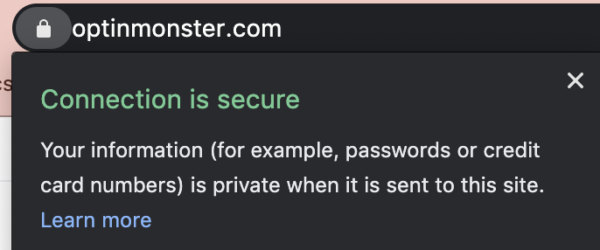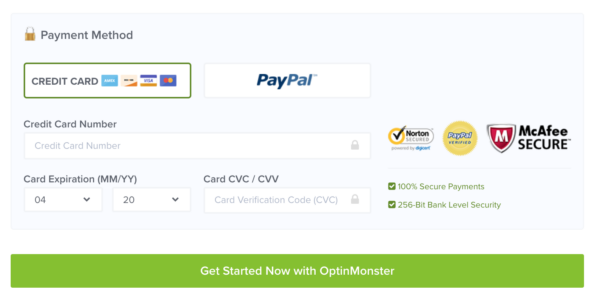If you own an ecommerce website, are you taking the appropriate measures to ensure it’s secure for your customers?
In 2019, over 7.9 billion records were taken from websites, including credit card details and home addresses. People are understandably cautious about trusting online stores and their security. It’s not worth the risk, especially with so many other choices available.
Whether your ecommerce store is large or small, unless it’s secure, it risks being compromised by spammers, hackers, and malicious software. Any website is at risk as long as its owner doesn’t take the necessary precautions to protect it and its visitors.
So, let’s look at three ways you can improve your ecommerce site’s security and continue pushing sales.
Use HTTPS
HTTPS, or Hypertext Transfer Protocol Secure, is an internet protocol that keeps your site data secure. If you expect visitors to give you their personal information, it’s essential to use HTTPS to ensure their confidentiality and privacy. Ecommerce websites especially need to adopt this protocol to protect their users’ connection to their site as they enter details such as credit card information.
Using HTTPS is essential because it guarantees the following protections, according to Google:
- Authentication: Proves to users that they’re engaging with the correct website
- Encryption: Encrypts data to keep it safe from hackers trying to steal information or track activity
- Data integrity: Protects data against attempts to tamper it
Before you can switch to HTTPS, you need an SSL certificate from a vendor or web hosting provider. Once installed, your website’s URL bar will show users that they have a secure connection to your site.
Install Security Plugins
Did you know that 52 percent of reported WordPress security vulnerabilities are due to plugins?
For ecommerce owners using WordPress, plugins are what keep your ecommerce website afloat. Plugins are software components that allow you to customize your website so it’s exactly what you want. Customizations are important for ecommerce stores because it helps them stand out from the competition.
But plugins are also good at securing your WordPress website so it stays safe from hackers and malware. You can install a security plugin so no one but you has access to your site data and customer information. It will also detect suspicious coding that may be used by spammers to infiltrate your site and wreak havoc.
A good security plugin comes with:
- Firewalls that monitor activity on your site and get rid of bots before they appear
- Malware scanning that regularly detects potential threats
- Alerts so you’re informed as soon as a threat is detected
Most security plugins are free, so finding one within your budget shouldn’t be an issue. Do your research to choose which one is best for your online store.
Offer Secure Payment Gateways
Part of offering a stellar customer experience is making them feel safe as they browse your online store. If visitors worry that their personal information isn’t secure as it enters your website, you’ll miss out on sales.
Ecommerce sites can increase conversions by 35 percent using an optimized checkout design. No one wants to take a chance with their privacy, so it’s crucial to make your customers feel comfortable as they engage with your site.
Offering secure payment gateways is essential to build a customer base, improve engagement, and increase sales. Payment gateways process users’ credit card information for ecommerce sites so they can make secure purchases. They also calculate tax, verify orders, and use geolocation for local actions.
Choose a payment gateway that aligns with your ecommerce marketing goals and is convenient for your customers. Consider what payment methods they use the most and are most familiar with to provide extra convenience.
Over to You
To run an ecommerce website successfully, you need to take the necessary steps to protect its customers and their data. Websites run the risk of getting hacked, spammed, and stolen from, so putting secure practices in place saves you from these issues. Without website security, your online store won’t produce nearly as many conversions or sales, so start securing yours today.

